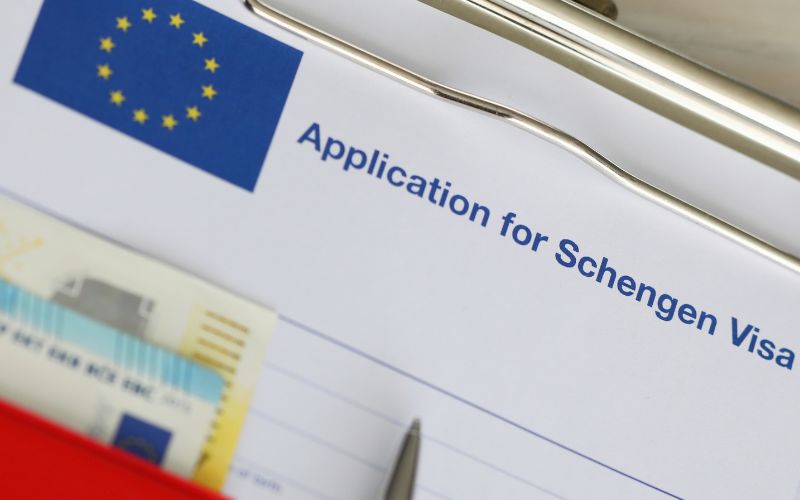Getting a Schengen visa can be difficult as Europe has some of the strictest travelling and immigration rules, but you can get your short-stay visa if you have all your documents in order and you apply correctly. These visas are perfect when you are looking to vacation in Europe or are visiting a friend or family for a short period. It is also perfect for your solo travel in Schengen zone. So, if you have either thing coming up and are looking to get a Schengen visa, the following information will help you know everything about the different types of visas, their requirements, and how to apply:
What is the Schengen area?
This word is used to represent the passport-free zone in Europe. So, if you belong to any of the Schengen countries in Europe, you can travel anywhere in the countries that fall under Schengen. This is a revolutionary development that makes the EU one of the stronger unions. Many other regional unions are trying to replicate this.
What is the meaning of Schengen visa?

It is one of the most powerful types of visas that allows you to travel to countries that are a part of the European Union. Yes, this one visa allows you to get into multiple countries. This visa holds much importance that there are many non-European countries as well that allow you entry if you have a valid Schengen visa.
What is a Schengen Short Stay Visa?
Schengen Short Stay Visa permits you to be in any of the Schengen countries for 90 days. The visa is valid for a specific period only and it may be shorter than 90 days. You can get this visa only every 6 months.
What You Can and Cannot Do with a Schengen Visa?
There are a few allowances and a few restrictions you have with a Schengen visa. These are:
Can Do
- You can travel through the Schengen countries for tourism purposes.
- You can make visits related to your business.
- You can visit and stay with your family and friends.
- You can be a part of a research or sports team.
- You can do short educational courses that are less than the visa period.
- You can visit for special medical treatments.
Cannot Do
- You cannot find employment in a Schengen country.
- You cannot enroll in a university for a long-term course.
- You cannot overstay your visa period.
Different Types of Schengen Visas
Uniform Schengen Visa (USV) – The USV allows you to stay in any of the Schengen countries and travel around within 90 days of the visa. But even under this type of visa, there are different categories. Here are the different types of Schengen visa.
- Single Entry Uniform Schengen Visa – This visa only lets you enter the Schengen countries once. If you leave, the visa automatically expires, so make sure you are not leaving the Schengen region before your 90-day period is over.
- Double Entry Uniform Schengen Visa – This visa will let you come back into the Schengen countries for a second time, but if you leave for a second time and the 90 days are not over, the visa will be considered expired.
- Multiple Entry Uniform Schengen Visa – Within the 90-day visa period, you can enter and leave Schengen countries multiple times. Your visa will expire only after the 90 days are over.
Limited Territorial Validity (LTV) Visa – Many member countries come under Schengen countries, and they can issue the LTV for special circumstances. This allows you only to be in that country. You cannot travel to any other Schengen countries.
Documents Required for a Schengen Short Stay Visa
Schengen Visa Application – You can download this form from an online source and print it out. Fill it out with all the correct information that can be matched with the documents you have to attach.
Passport – A valid passport that has a validity of more than 6 months from the tour date. Also, make sure your passport is not too old and has a few blank pages if you’re planning to travel around Schengen countries.
Return Tickets & Trip Itinerary – Provide details of your return flight and your travel itinerary when you are travelling through the Schengen visa countries. Transparency and clarity will increase the chances of your visa getting approved.
Travel Insurance – Though most European countries tend to have universal healthcare, it is for their citizens only and you will need travel insurance that gives you coverage of up to 30,000 euros.
Proof Accommodation – If you will be staying in hotels throughout your trip, you need to provide names and booking confirmation. If you will be staying with friends or family, you need to provide their address, other important details, and an official letter of invitation from them.
Financial Capabilities – You also have to show that you are capable of travelling through the Schengen countries and have enough money for travel, food, and stays. For this, provide your bank’s statement or a letter of sponsorship, or both.
Schengen Visa Fees – During the time of submission of the application form and the documents, you have to pay a certain amount as visa fees which are like a price for the whole process, and hence, is non-refundable.
Once your appointment is done and biometrics are entered into the system, you may be granted your Schengen Tourist visa. It is also important to check out the Schengen visa validity rules that will ensure that you have stress-free travel in the Schengen countries you are visiting.
Conclusion
The Schengen countries are beautiful and an absolute must-see for all those who love history, culture, food, and amazing sights. You can also use professional visa services that can help you throughout the process of applying and receiving the Schengen visa.
